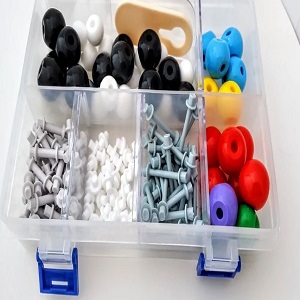Why Science Projects are Important for Kids
 Children Love Science
Children Love Science
There are a multitude of opportunities to learn about the science around us. Children are born with an insatiable curiosity for life and for science, asking what can feel like a million questions a day because they are still learning about their existence.
Children are fascinated by science and as an educator, it’s your responsibility to expose kids to topics they may not even know exist.
The Job of a Science Teacher
As an educator, you have a tremendous responsibility and privilege. You are tasked with making science interesting and fun for kids. As stated before, science is already an interesting subject to kids; it just needs to be presented in a way that is fun.
When your students see science as reading books and listening to lectures, it will not be fun, but when they are able to ask questions, get involved with their hands, make predictions and have fun, they will naturally be able to learn without effort. Children do not all need books to learn about science because science is all around them.
Every day presents opportunities to learn, and play is one of the best ways that children can learn about the world. Incorporate play in the way that you teach your students, and you will find their interest sore when it comes to the sciences. If you are having trouble coming up with fun and innovative activities for your students, consider checking out the learning resources offered by the Adobe Education Exchange platform.
How to Help Your Students Learn More About Science
It’s important to always encourage your students to ask questions. When they go outside, have them look around and write down any thoughts, questions, or ideas that come to mind. Instead of answering the question right away for them, help them do their own research. This is especially helpful for kids around 10/11 years old, as they are beginning to better understand their surroundings and ponder why things work the way they do. For kids in this demographic, science 5th grade projects can be extremely fun and rewarding. There are plenty of resources out there, including the Adobe Education Exchange platform, that provides step by step instructions for science projects related to chemistry, biology, physics, and more.
Science for Every Kid
When it comes to learning about science, you want to make sure to remember that each and every one of your students is different. Even though they naturally will have an interest in science, you don't know where that interest will take them. There is no need to force a child's interest if it is not there. Instead of that, present different ways to do projects and experiments. Some kids may love to read, other kids may want to build, some kids want to investigate, and others want to experiment. Give your students tons of options when it comes to science, and you will see that their natural curiosity will become their best friend in learning.

